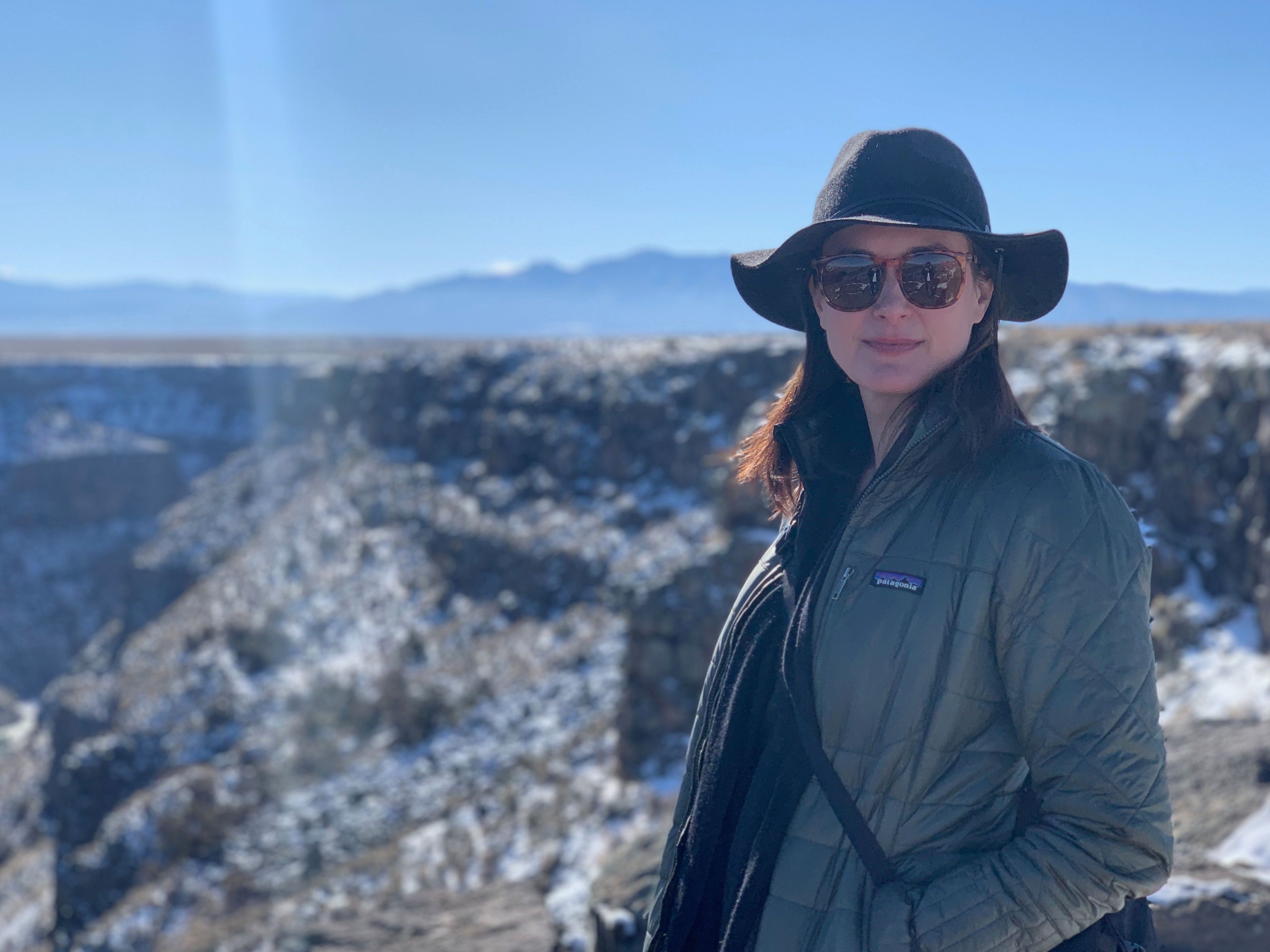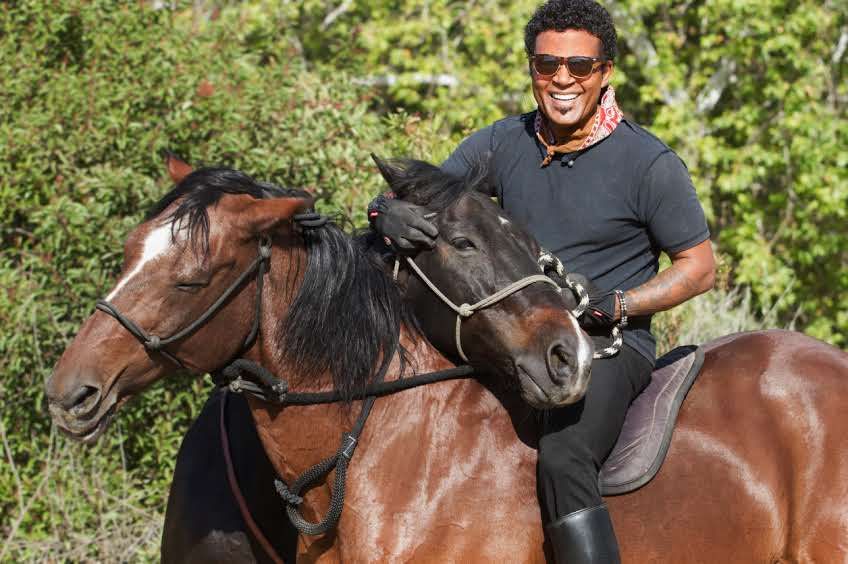Schulz + Giant Steps Therapeutic Equestrian Center
Giant Steps Executive Director Beth Porter says: “These kinds of stories really affect you..."
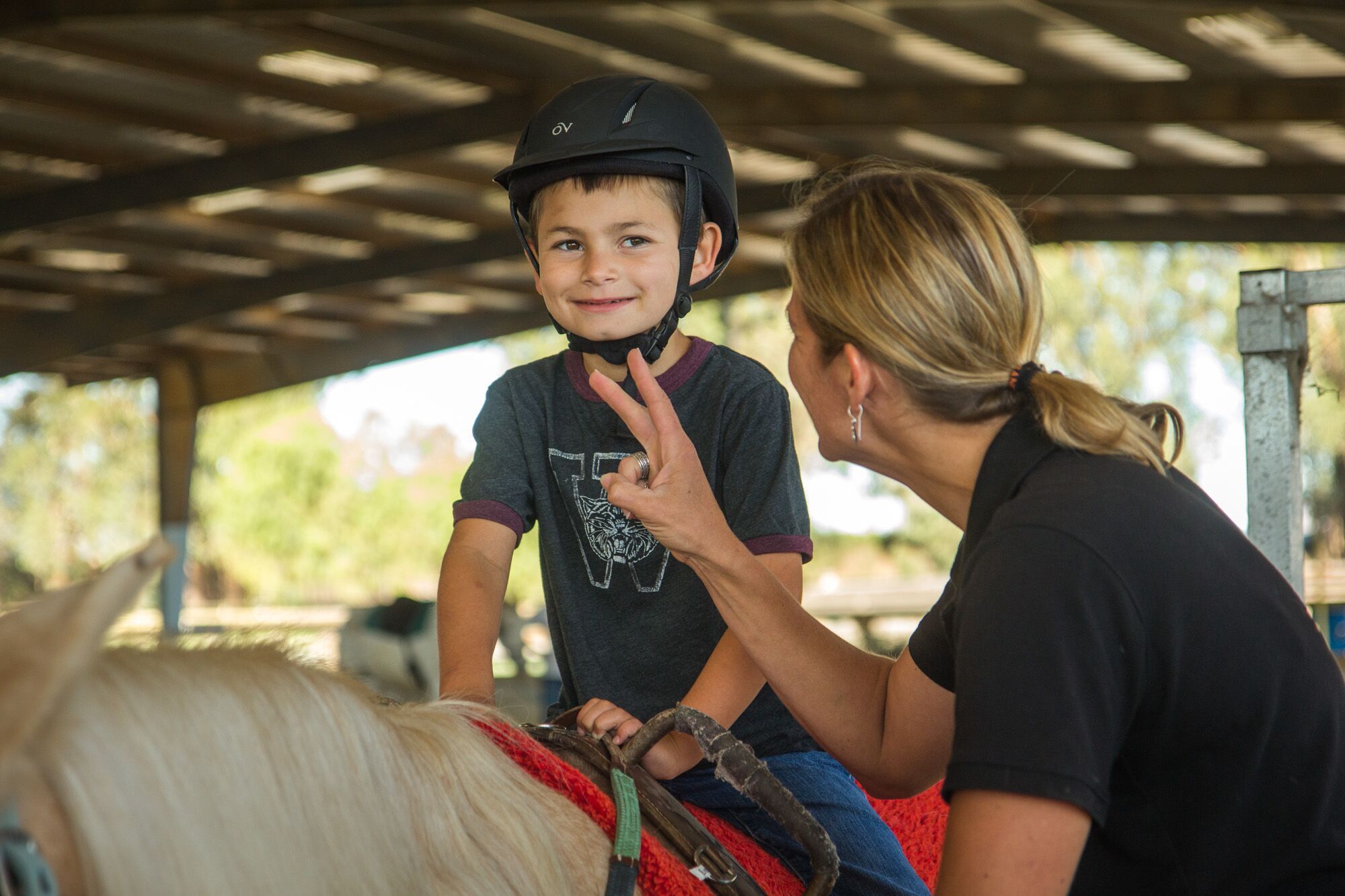

Talking to Beth Porter, Giant Steps Therapeutic Equestrian Center’s Executive Director, one immediately gets the sense that this equestrian nonprofit in Sonoma County is a special place. Porter herself cannot quite seem to get away from the organization, not that she wants to. This is her second time serving as Executive Director — she stepped away from the role several years ago but when her successor stepped down and Giant Steps needed a new director she happily came back to serve the organization once again. When asked why Porter responds with a smile and says, “it’s a special place.”
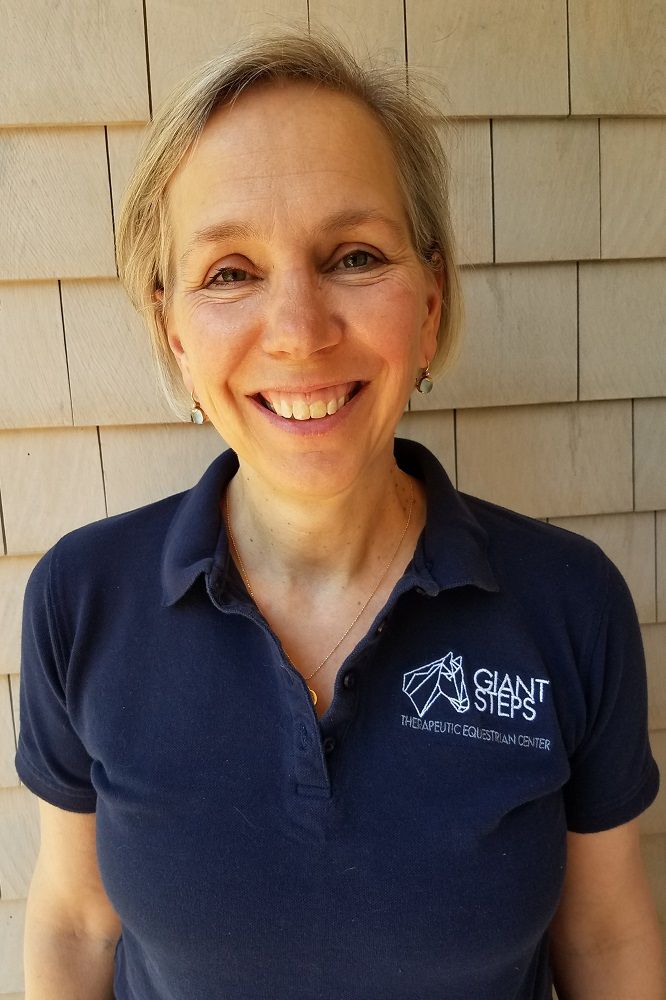
Located in Petaluma, one of California’s oldest cities, Giant Steps was founded in 1998 by Robert Pope and Lee Justice after they discovered a passion for therapeutic riding years before. They initially moved from the Bay Area to Montana with plans to enjoy their retirement when they happened to get into a conversation with a friend about how beneficial horseback riding can be for individuals living with physical and cognitive disabilities. Inspired by the conversation and seeing that they had the resources to make such a center happen, Pope and Justice sold their ranch in Montana in 1996, and relocated to Petaluma. When an anonymous person posted on a cerebral palsy support group that this new organization, Giant Steps, was offering adaptive riding services, their phone “started ringing off the hook” said Pope in a mission statement on Giant Steps’ website.
The program has blossomed over the years, growing from an original staff of 19 volunteers serving 10 riders to now hosting over 130 riders every week. The kinds of services they offer and disabilities they work with has grown as well. Giant Steps now offers programming that cater to the needs of veterans and active service members as well as programming for people with anxiety and depression, common symptoms of PTSD.
Those affected by PTSD and other trauma-related issues do not necessarily have to be military members. One woman, Porter recounts, was the survivor of a sexual assault. One of the horses kept nudging this particular woman, an act that was annoying her. She kept shooing it away, but the horse continued until finally she gave an emphatic “NO!”, and promptly burst into tears. It was the first time since the assault, Porter said, that the woman had been able to say no. Equestrian therapy is healing in a variety of ways, many of which come from the highly-sensitive and perceptive emotional nature of the horses themselves.
Another little girl, named Megan, was non-verbal when she came to the program. She made clear with her body language that she wanted to ride a different horse from the one she had been assigned. The volunteer Megan was working with said she could ride her preferred horse if she would speak what she wanted out loud, if she would say the words “brown horse.” In her fourth week, after having gotten more and more frustrated with not getting what she wanted, Megan pointed in the direction of the horse she desired saying the normally banal but personally significant words “brown horse.” Everyone around her was moved and Megan got to ride her brown horse. These kinds of stories really affect you, emphasizes Porter, and they happen all the time.
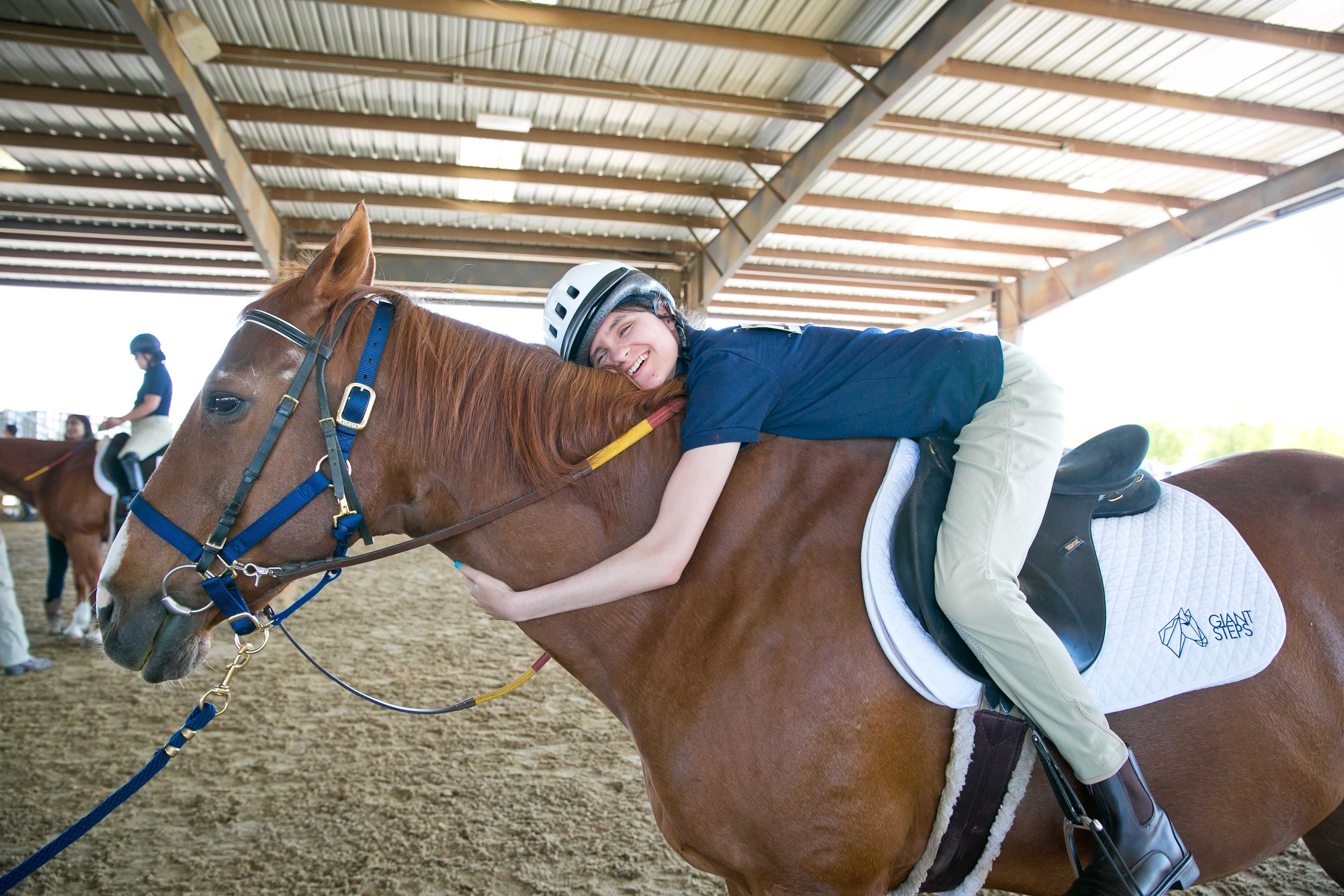
Giant Steps specializes in adaptive riding, a therapeutic technique which utilizes both on and off horse activities. This combination of sport, recreation and education in equestrian pursuits can help with a variety of disabilities, including but not limited to cerebral palsy, ADD/ADHD, learning disorders, autism, down syndrome, developmental delays, and stroke recovery. As can be seen from the sexual assault survivor and the non-verbal girl, many of the lessons that aid recovery might not happen during actual riding lessons, but around the activities. This is where the education and interpersonal aspects of horse riding come in. Simply being around the horses can be therapeutic, Porter says.
These two stories illuminate the benefits of another service Giant Steps offers called Equine Facilitated Learning which the Giant Steps website describes as “unmounted lessons that include engaging activities with horses that teach character development and reinforce life skills.” These activities are good for people who, for whatever reason, cannot participate in more traditional horseback riding, otherwise known as “mounted lessons.” A few of the benefits listed for Equine Facilitated Learning include emotional identification, self-awareness, collaboration and teamwork, improved communication, and trust. These lessons may particularly benefit veterans living with post-traumatic stress disorder and trauma victims, including at-risk youth and women’s groups.
The mounted lessons also give the rider enhanced motor skills, especially important for those re-developing physical capabilities, such as recovering from a stroke. It can help riders develop the ability to follow multi-step directions, increase their attentions span, and develop flexibility, strength and balance. Though these medical developments are important in and of themselves, adaptive riding also helps its riders develop an enhanced quality of life, giving them an activity that brings them joy.
Many riders look forward to their lesson all week, says Porter. For a number of the people who arrive at Giant Steps, particularly adults, adaptive riding is perhaps their only athletic and outdoor activity. Adaptive riding enhances not only physical development but also emotional quality of life and social skills, including the development of many interpersonal skills most of us take for granted such as maintaining eye contact, learning how to use expressive language, and manage their vocal volume. Last but certainly not least these lessons increase confidence and self-esteem.
All Giant Steps instructors are certified by the Professional Association of Therapeutic Horsemanship International, PATH for short. Originally called the North American Riding for the Handicapped Association (NARHA) PATH was founded in 1969 by a small group of people who wanted to spread information about therapeutic horse riding and its benefits across the country. The concept of therapeutic riding had been brought to the states not that long beforehand, in the mid-twentieth century.
Adaptive riding can trace its origins back to Lis Hartel, a dressage rider from Denmark who, despite being affected by polio, went on to win silver medals at the 1952 and 1956 Olympics in Individual dressage. This extraordinary achievement turned both equine enthusiasts and medical professionals on to the concept that equestrian activities could be useful in rehabilitating disabilities, almost like a compliment to physical therapy. From this was born what would eventually become known as adaptive riding.
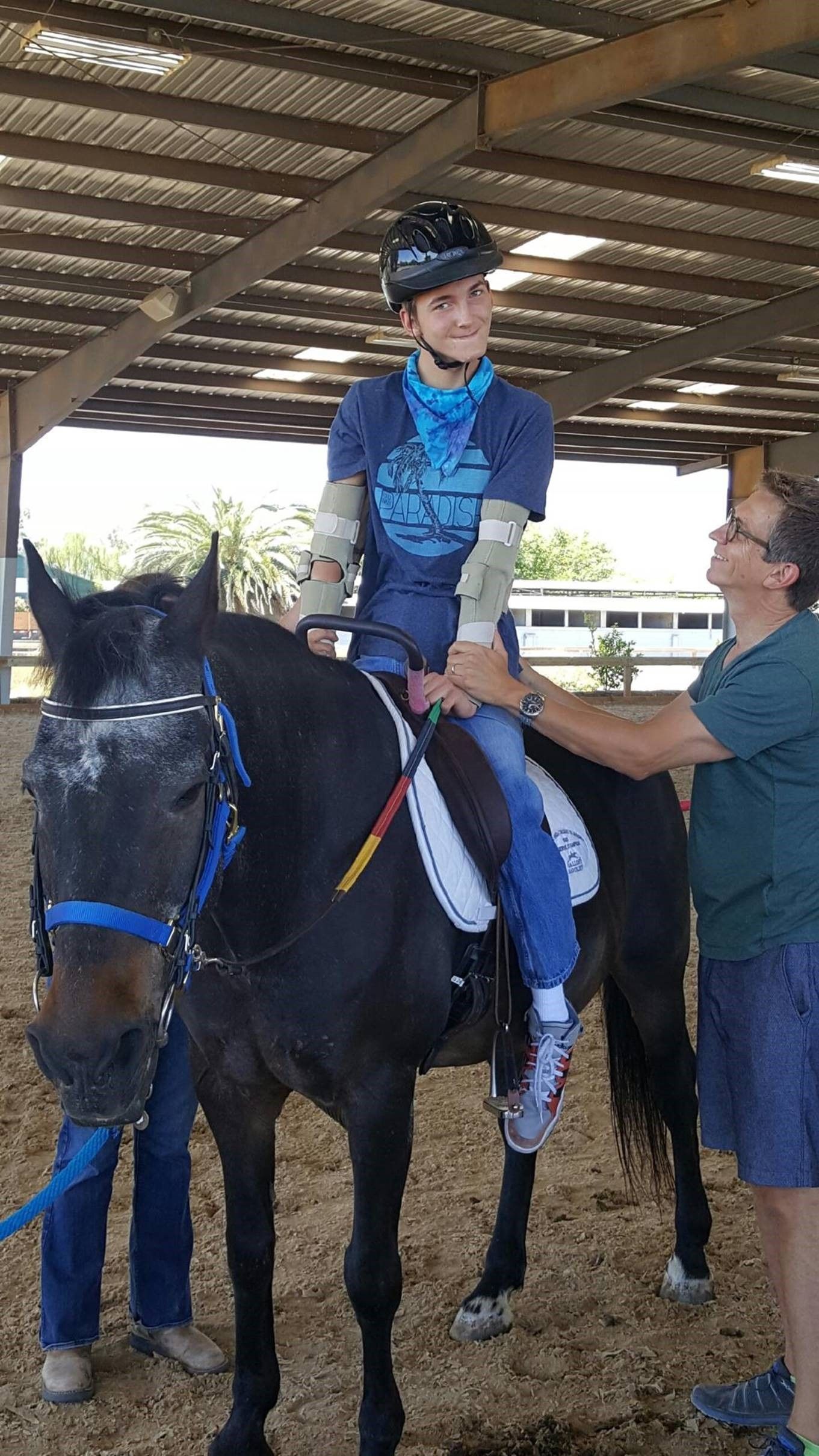
While traditional physical therapy offers many benefits there are certain advantages to adaptive riding that can only occur on a horse. There is a sense of freedom of movement that the rider is given that they may not experience in other aspects of their lives. The rhythm of the horse’s gate is also beneficial, not only activating rarely-used muscles for balance but also providing a sense of calming release. In the case of cerebral palsy, many riders may have muscles locked into a state called spasticity — wherein the muscle contracts but cannot loosen. During adaptive riding, these muscles often relax.
Giant Steps has a loyal group of staff and instructors, but is always looking for volunteers, the lifeblood of the organization. While they do charge for their services, they offer those who need it financial assistance and as such, donations are always necessary and welcome. Additionally, there are instructions on their website for donating a horse to the team, and wish lists for supplies from a variety of companies. The nonprofit can also always use donations of items specified on their website, ranging from Red Cell pellets to ordinary paper towels.
One of the many benefits enjoyed by volunteers, staff and riders alike is getting to enjoy the company of the Giant Step’s horses — with their distinctive characteristics and unique personalities. One unlikely duo are Darren and Corky, two horses with radically different personalities. Corky is a show-off, a bit of a class clown so to speak. He enjoys playing the alpha of the bunch and letting the other horses know he is boss. Born in 1993, Corky began his journey at Giant Steps at the age of seventeen, works well with riders looking to increase their balance, and loves to have an audience to show off for.
Darren, on the other hand, is his opposite. Together they form the consummate odd couple. Stoic, gentle and a bit of a people pleaser, he is the younger of the two, born in 1996. Darren joined Giant Steps at the age of 14 and is one of the easiest horses to work with given his sweet, easygoing nature. While these horses could not be more different personality-wise, they are the best of friends.
These types of multi-layered, interwoven relationships are what Giant Steps are all about. The nonprofit gives horses a chance at another life helping people after whatever background they come from. It gives riders with a multitude of personal and medical challenges a shot at getting their life back, whether that means developing motor skills, emotional stability or just having a chance to feel a sense of freedom, movement and nature that they cannot attain in their everyday lives. Which is why, Porter states, she stepped up when Giant Steps needed her. “I believe in what we’re doing,” she says.
To learn more about Giant Steps, visit their website and please consider donating to their program or purchasing items from their Wish List for their horses, lessons, and students.
